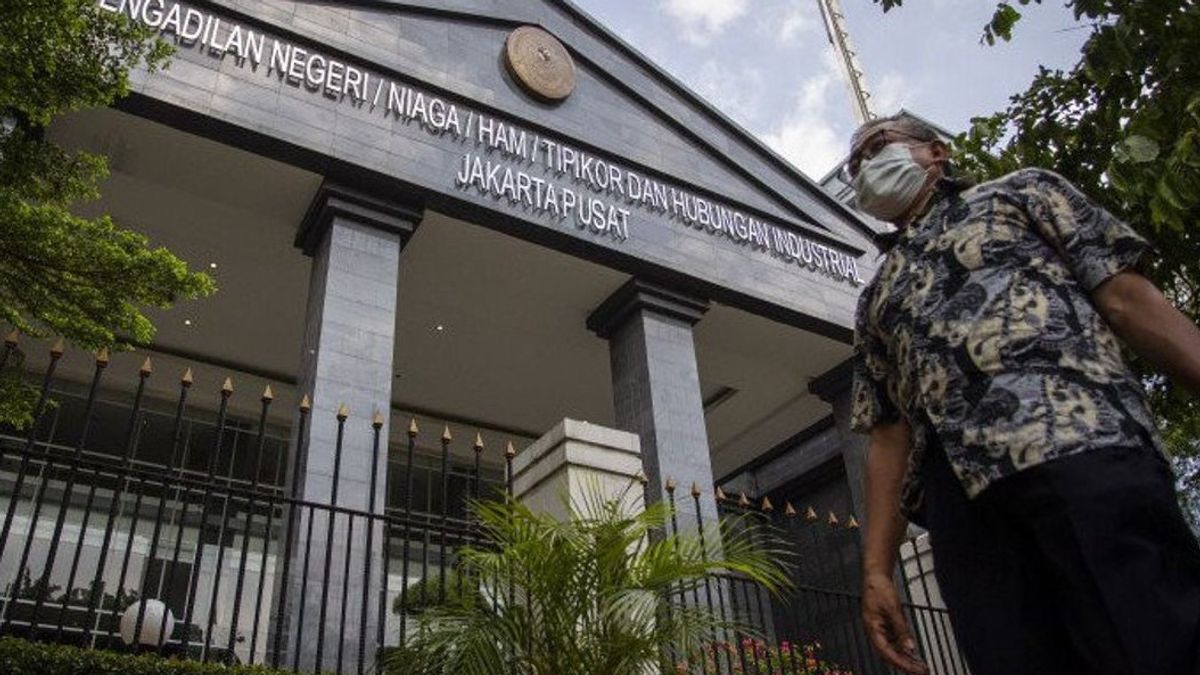
JAKARTA - At that time, in 1808, Herman Willems Daendels came to the Dutch East Indies. He served as Governor-general. Although relatively short, Daendels died of many legacies. One of them is the death penalty. At that time, Daendels' target was corruptors. It is there that the long history of the death penalty in Indonesia begins with all its controversy.
Daendels, who carried the concept of a modern state in the Dutch East Indies, wanted to eliminate all corruption and other fraud in the VOC. Corruption among Dutch officials in the colony was the target of Daendels, "wrote historian Ong Hok Ham in the book Wahyu Yang Hilang, Negeri yang Guncang (2018).
The first consolidation of the death penalty in Indonesia occurred at that time. Daendels made a rule that the Governor-General of the Dutch East Indies had the authority to give the death penalty. The legal scheme at that time, every person who was found guilty and the court determined the death penalty for him, then the verdict had to be approved by the governor-general.
Apart from eliminating corruption, the death penalty was also a strategy to silence the resistance of the colonial population while at the same time defending Java from British attacks. We have discussed this in-depth in the article "Daendels' ferocity in Eradicating Corruption in the Colonial Age".
Second consolidation and beyond
The second consolidation of the death penalty occurred during the implementation of Wetboek van Strafrecht voor Inlanders (Indonesiërs) January 1, 1873, and Wetboek van Strafrecht voor Inlanders (WvSI) January 1, 1918. In fact, since 1870 the Dutch have abolished the death penalty in their country.
Reporting from the official ICJR website, Friday, February 19, this was motivated by racial reasons, that the Colonial State at that time thought that the colonial natives had various bad qualities about honesty. Indigenous people are considered liars, cannot be trusted, who even often give false statements in court.
In the early days of independence, the death penalty was maintained by adjusting WvSI as criminal law. In the context of military criminal law, the death penalty is seen as a response to strengthen the country's defense strategy from the situation and efforts to defend independence. This was true in the period 1945-1949.
During the liberal democracy era in 1951, the death penalty was retained. The main purpose is different. This time to ward off the rebellion that occurred in almost all parts of Indonesia. At that time, Emergency Law Number 12 of 1951 was formed, regarding the temporary special punishment regulations regarding firearms, ammunition, and explosives.
During the Guided Democracy era from 1956-1966, President Soekarno issued the Emergency Law on Investigation, Prosecution and Economic Crime Justice (LN 1955 Nr 27). The law was strengthened by Presidential Decree Number 5 of 1959 and Government Regulation in lieu of Law (Perppu) Number 21 of 1959 with a maximum threat of death penalty.

The entire Law is intended as a response to Indonesia's economic conditions which have experienced a drastic decline due to widespread world inflation, damaged implementation of food and clothing equipment, and the many crimes in the economic sector committed by state officials and society.
The crimes referred to are hoarding of goods, profiteering, and so on. President Soekarno also issued a regulation that he hoped would reduce the level of corruption crimes. He also issued a Perppu on the Investigation, Prosecution, and Examination of Corruption Crimes (LN 1960 Nr 1972).
During the New Order era (1966-1998), the death penalty was used to achieve political stability in order to secure the development agenda. During this period several crimes, one of which was narcotics crime, were considered a subversive effort.
At that time, the corruption attorney was charged using Law Number 11/PNPS/1963 concerning subversion which included the death penalty, although at this time the crime of corruption itself was not punishable by death. Several legislations that include the death penalty, among others, are related to Aviation Crimes and Aviation Facilities, and Atomic Energy.
Death penalty today
During the reform period (1998-present), the death penalty in the legislation was characterized by reasons of "emergency", ranging from reasons for disaster emergencies to emergency child protection. All these emergencies are an urgent reason for burdening someone's punishment in the interests of national stability.
In Indonesia, there are at least 12 laws that still include the death penalty as a form of crime. In contrast to the development of criminal law in the Netherlands which has abolished the death penalty since 1870, the Indonesian Criminal Code still maintains the death penalty.
There are a number of the most popular motives for the use of the death penalty in Indonesia. First, the death penalty is considered to be far more effective in providing a deterrent effect than other punishments. Besides being scary as shock therapy, the death penalty is also considered more economical.
The death penalty is also often taken on the grounds that there are no vigilantes in society. Apart from that, the still strong function of punishment which focuses on the aspect of retribution is also a driving factor in the perpetuation of the application of the death penalty.
[/ read_more]

April 2020, Amnesty International reviewed data on the application of the death penalty in Indonesia. The result, increased. Amnesty International Indonesia Campaign Manager Justitia Avila Veda explained, in 2018, there were 48 cases with the death penalty. In 2019, that number has increased to 80 convictions.
Indonesia's attitude seems incompatible with the spirit of the international world. Globally, the death sentence sentencing in 2019 actually decreased, from 2,531 sentences in 2018 to 2,307 sentences in 2019.
Of the 80 death sentences recorded in 2019, 60 of them were related to cases of narcotics trafficking. Eight of the 60 cases involved foreign nationals.
Meanwhile, in the list of two legal cases with death sentences, the most were in the realm of murder. The rest, one case was related to child rape, and one other case involved the accused of terrorism.
MEMORY Other
[/ read_more]
The English, Chinese, Japanese, Arabic, and French versions are automatically generated by the AI. So there may still be inaccuracies in translating, please always see Indonesian as our main language. (system supported by DigitalSiber.id)









